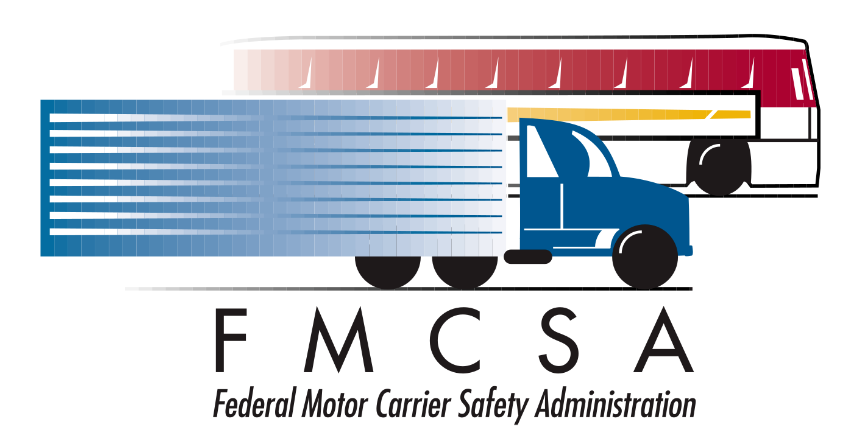FMCSA: Ensuring Safety for Motor Carriers through Federal Regulations

Who is FMCSA and Why is it Important for Motor Carriers?
The Federal Motor Carrier Safety Administration (FMCSA) is an important agency within the Department of Transportation that oversees the safety of commercial motor vehicles in the nation. Their mission is to reduce crashes, injuries, and fatalities involving large trucks and buses. Motor carriers, which are companies that use commercial vehicles for transporting goods or passengers, must comply with FMCSA regulations to ensure the safety of their drivers and the public. It is important for motor carriers to know and keep up with FMCSA regulations in order to avoid penalties and ensure their operations are in compliance with federal standards.
FMCSA provides resources and information on their website for motor carriers to use in understanding and meeting regulatory requirements. They also take action against carriers who violate safety regulations, in order to protect the industry and the public. Motor carriers are required to have a USDOT number and to contact the FMCSA for assistance in maintaining compliance with safety standards.
Understanding the Role of FMCSA in Regulating Motor Carriers
The Federal Motor Carrier Safety Administration (FMCSA) plays a crucial role in regulating the nation’s motor carriers, ensuring they comply with safety regulations and standards. By enforcing laws related to commercial vehicles, the FMCSA aims to reduce accidents, injuries, and fatalities on the road. Through inspections, audits, and investigations, the agency monitors carriers’ adherence to regulations on driver hours, vehicle maintenance, and cargo securement. This oversight helps to maintain the safety of the nation’s highways and protect the well-being of all road users.
How FMCSA Regulations Impact Motor Carrier Operations
FMCSA Regulations set standards for safety, maintenance, and hours of service for drivers, ensuring compliance with these regulations is essential for carriers to operate legally and safely. Failure to adhere to these rules can result in penalties and potential loss of license.
These regulations also aim to reduce the number of accidents and fatalities on the roads by enforcing strict guidelines. They cover areas such as driver qualifications, drug and alcohol testing, and vehicle inspections, all of which contribute to maintaining a high level of safety within the transportation industry.
By implementing these regulations, the FMCSA is able to monitor and enforce compliance, ultimately working towards a safer and more efficient transportation system. Carriers must stay informed of any updates or changes to these regulations to ensure they are operating within the legal boundaries set forth by the agency.
What Federal Regulations Govern Motor Carriers?
Key Federal Regulations Enforced by FMCSA for Motor Carriers
Federal regulations govern motor carriers to ensure safety and compliance within the industry. These regulations include rules on hours of service, vehicle maintenance, driver qualifications, and hazardous materials transportation. The Department of Transportation (DOT) and the Federal Motor Carrier Safety Administration (FMCSA) oversee and enforce these regulations to protect both drivers and the general public.
How FMCSA's Regulations Ensure Public Safety on Highways
FMCSA's regulations are designed to ensure public safety on highways by setting standards for commercial drivers and vehicles. These regulations cover areas such as driver qualifications, hours of service, and vehicle maintenance. By enforcing these regulations, the FMCSA aims to reduce accidents and fatalities on the road.
Additionally, FMCSA regulations require companies to carry a minimum level of insurance coverage to protect against liability in the event of an accident. This helps to ensure that victims of accidents involving commercial vehicles are fairly compensated for their injuries and damages.
Through regular inspections and audits, the FMCSA can identify and address safety violations before they lead to accidents. By holding companies and drivers accountable for compliance with regulations, the FMCSA helps to keep highways safe for everyone who uses them.
How to Stay Compliant with FMCSA Regulations as a Motor Carrier?
Steps Motor Carriers Should Take to Maintain Compliance with FMCSA Regulations
Motor Carriers should take several steps to maintain compliance with FMCSA regulations. Firstly, they should regularly review and update their safety management systems to ensure they are meeting the required standards. Secondly, conducting regular training sessions for drivers and staff to educate them on the latest regulations and best practices is crucial. Thirdly, implementing regular vehicle maintenance checks and inspections can help prevent violations and ensure the safety of both drivers and the public. Lastly, staying informed about any changes or updates to FMCSA regulations is essential to ensure ongoing compliance.
Common Violations and How to Avoid Penalties from FMCSA
Common violations that truck drivers and carriers often face include hours-of-service (HOS) violations, vehicle maintenance issues, and drug and alcohol violations. To avoid penalties from the FMCSA, it is important for drivers and carriers to stay compliant with regulations, conduct regular vehicle inspections, and ensure drivers are not under the influence.
What Services Does FMCSA Provide?
FMCSA provides a variety of services to the commercial motor vehicle industry in the United States. One of the main services offered by FMCSA is the regulation of interstate transportation, including setting safety standards and enforcing regulations to ensure the safe operation of commercial vehicles. This includes overseeing the licensing and registration of commercial motor carriers and drivers, as well as conducting safety audits and inspections to ensure compliance with federal regulations. Additionally, FMCSA provides resources and information to help carriers and drivers stay compliant with regulations, such as training programs and safety guidelines. The agency also investigates complaints and safety violations, taking enforcement actions when necessary to protect the public and promote safety on the nation's roadways.
Unlock innovation with CarsXE's vehicle APIs. Empower your automotive projects with comprehensive car data today!